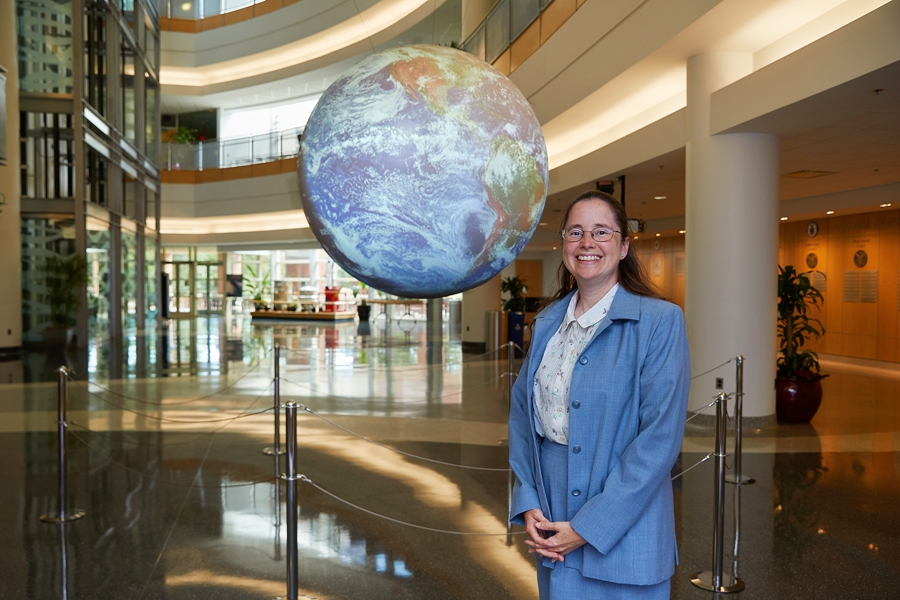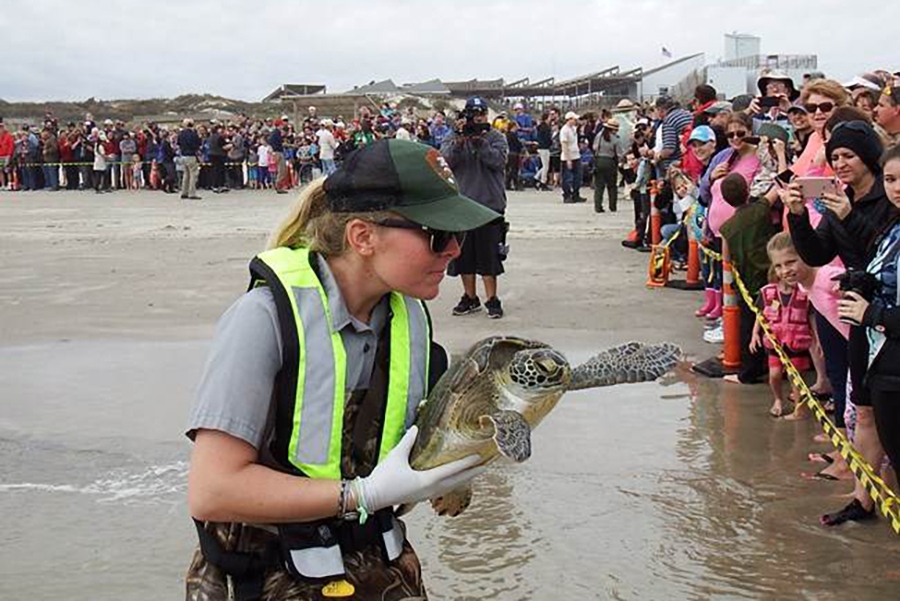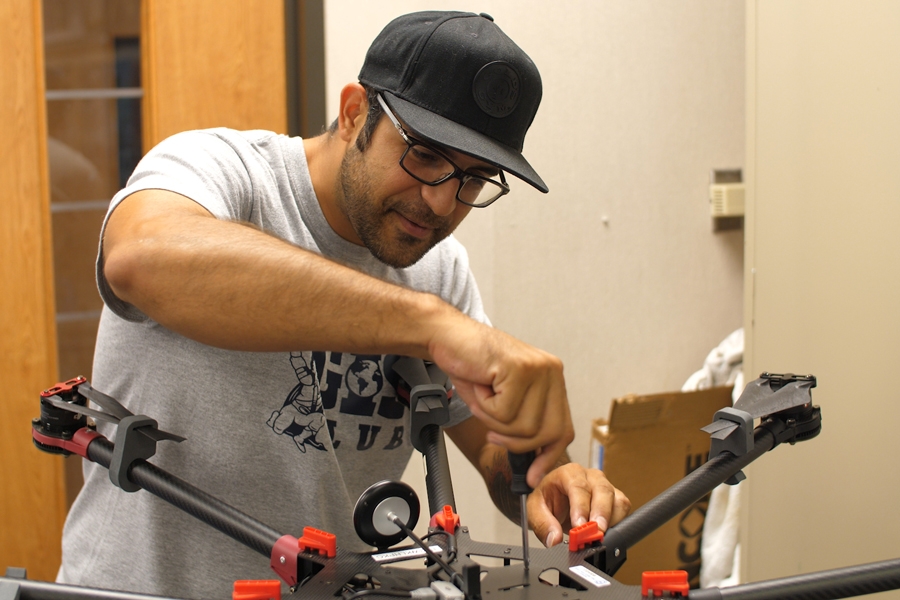In Jan. 2020, Amy McGovern, Ph.D., the Lloyd G. and Joyce Austin Presidential Professor in the Gallogly College of Engineering and professor in the School of Meteorology, applied for a $20 million grant from the National Science Foundation to establish the AI Institute for Research on Trustworthy AI in Weather, Climate, and Coastal Oceanography. In May of that same year, she was notified that the University of Oklahoma was awarded the grant and that she would be named its director.
Two and a half years later, the institute, AI2ES, has not only formed convergent teams of interdisciplinary researchers but is already making headway in five use-inspired applications: convective weather, winter weather, tropical cyclones, sub-seasonal to seasonal extreme weather, and coastal oceanography.
Because the University of Oklahoma is a national leader in atmospheric research, much of the early focus at OU for AI2ES has been on the convergence of artificial intelligence, risk communication and convective weather, which refers to thunderstorms, wind, hail, tornadoes and lightning.
“The artificial intelligence team is working hand-in-hand with atmospheric scientists to develop new AI methods,” McGovern said. “That work then incorporates social scientists to ensure that our end-users trust the AI we’ve developed and will actually use it.”
Trust is a foundational part of the research AI2ES is undertaking. Understanding the nature of trust, and why some artificial intelligence and automated technologies are trustworthy, and some are not, is vital to the program’s success. Experts and citizens alike need to trust the predictions that AI2ES programs are making.
“This trustworthy work isn’t just about Oklahomans wanting to know when the next thunderstorm is going to happen,” McGovern said. “The benefits of our convective initiation can impact several sectors, including the aviation industry and even outdoor events.”




